WORLD FOCUS
A right Royal welcome
Jakarta, hoping for investments, goes all out to host the Saudi King, who is on a tour of Asia to boost Saudi Arabia's economic ties
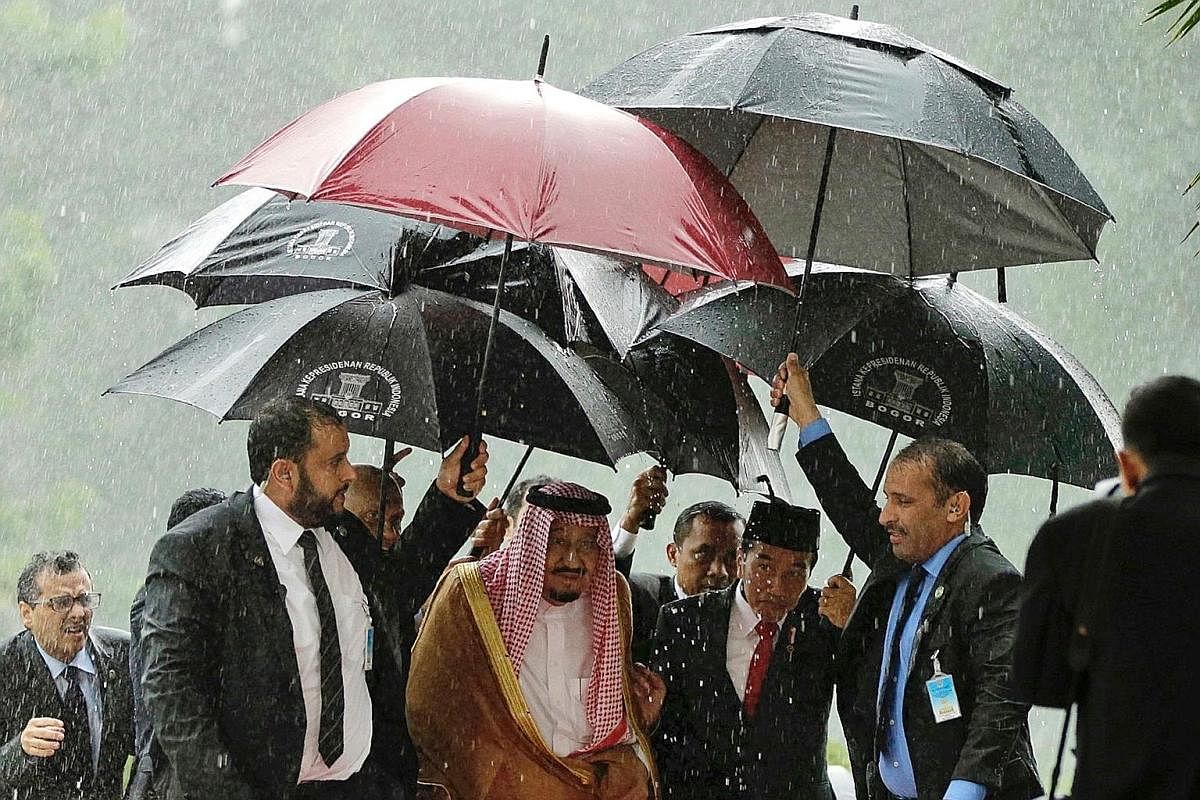
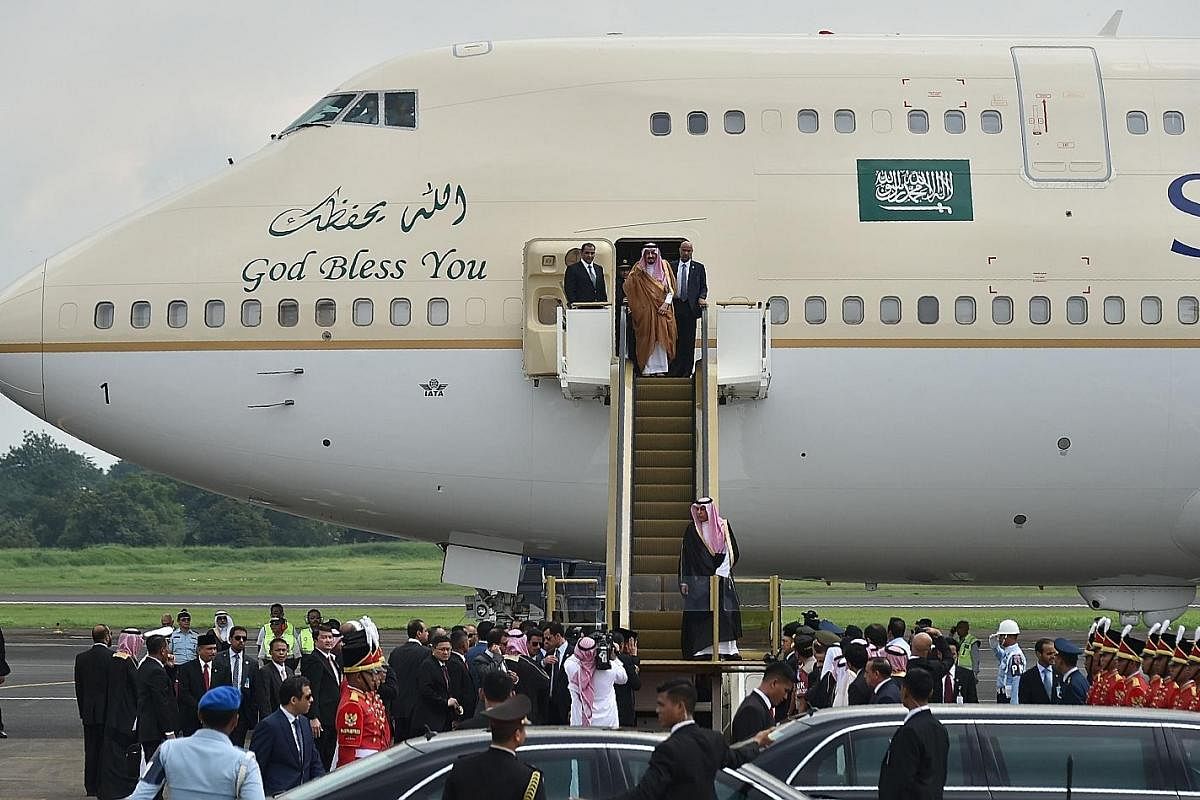
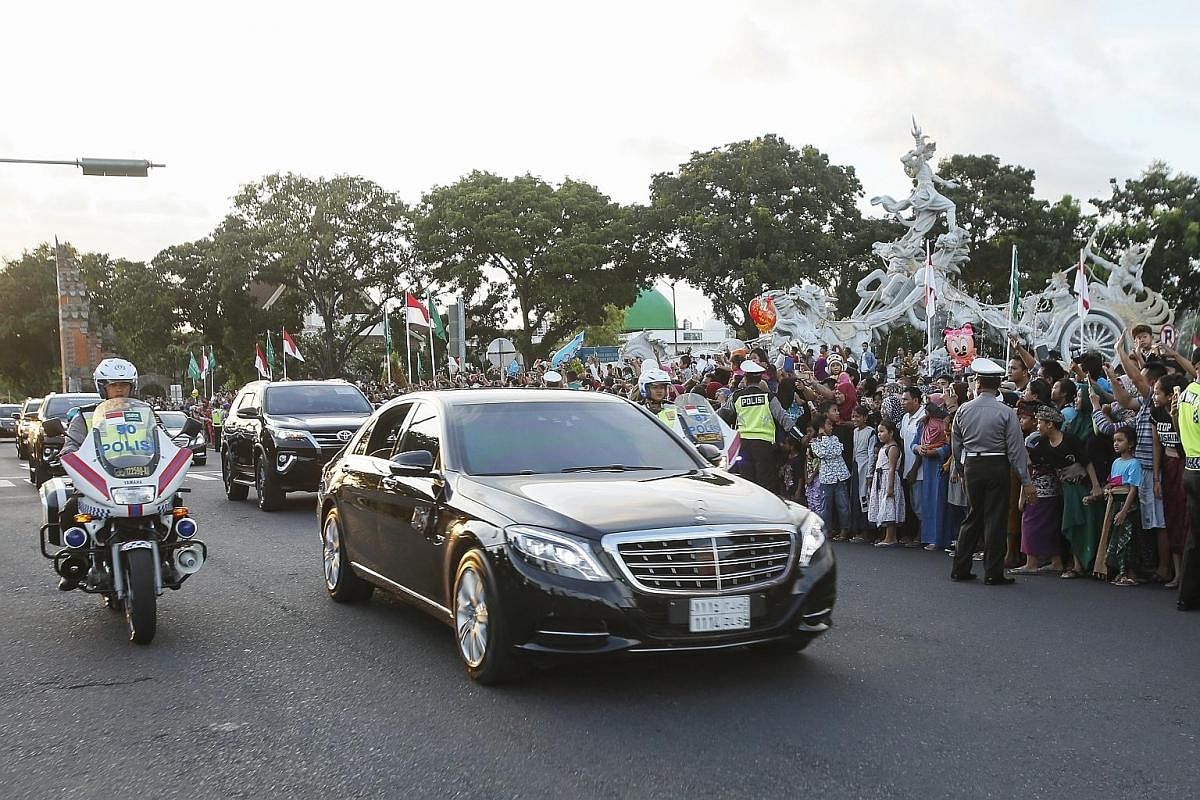
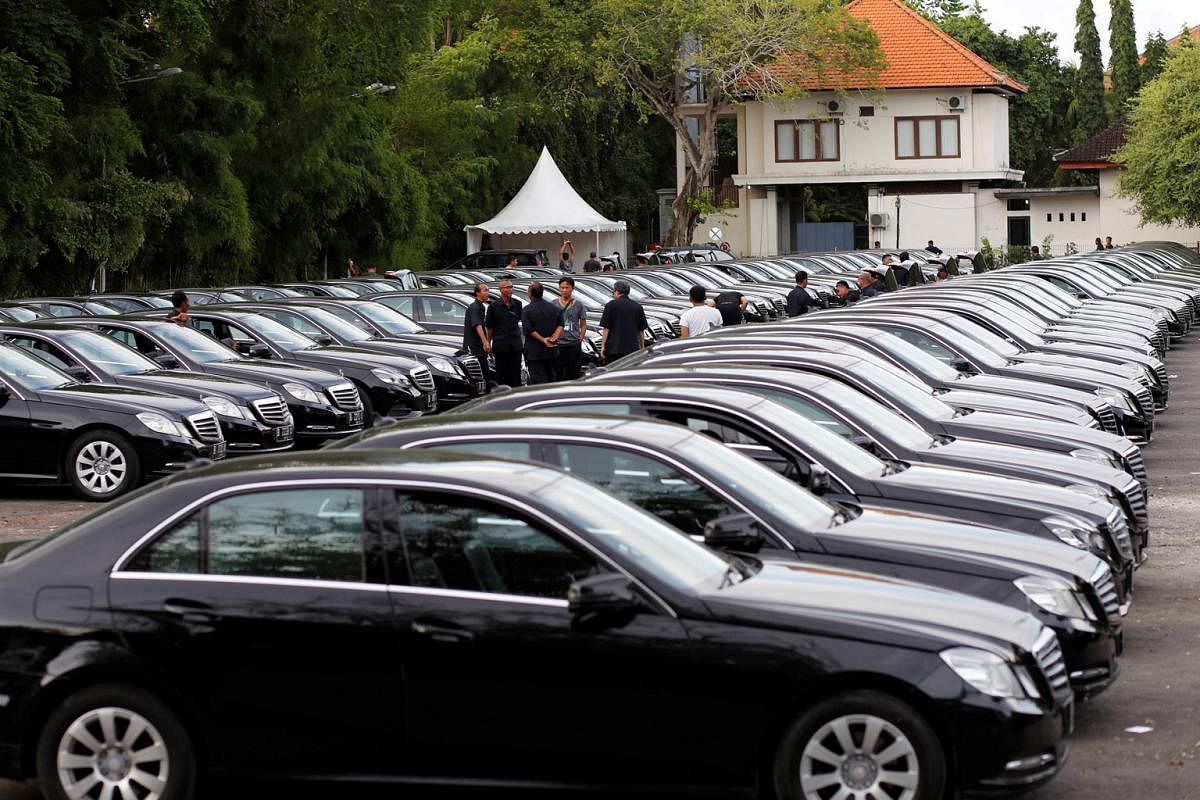
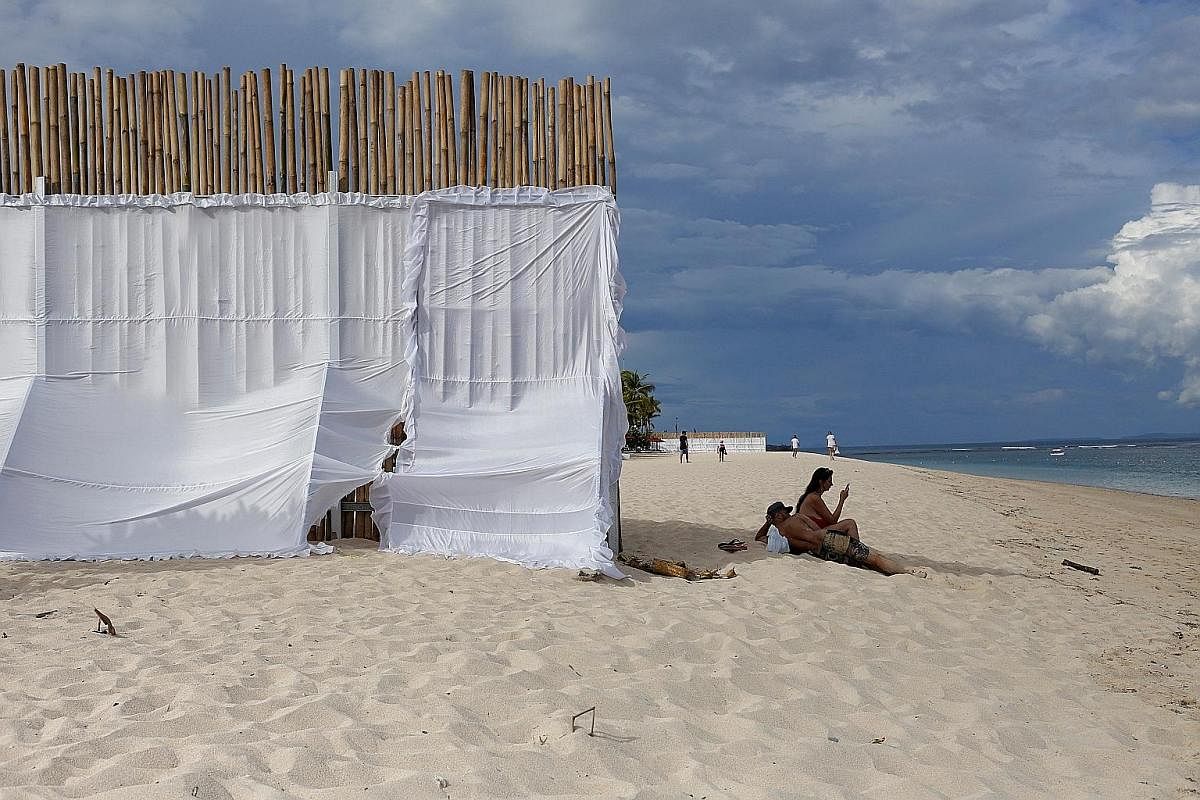
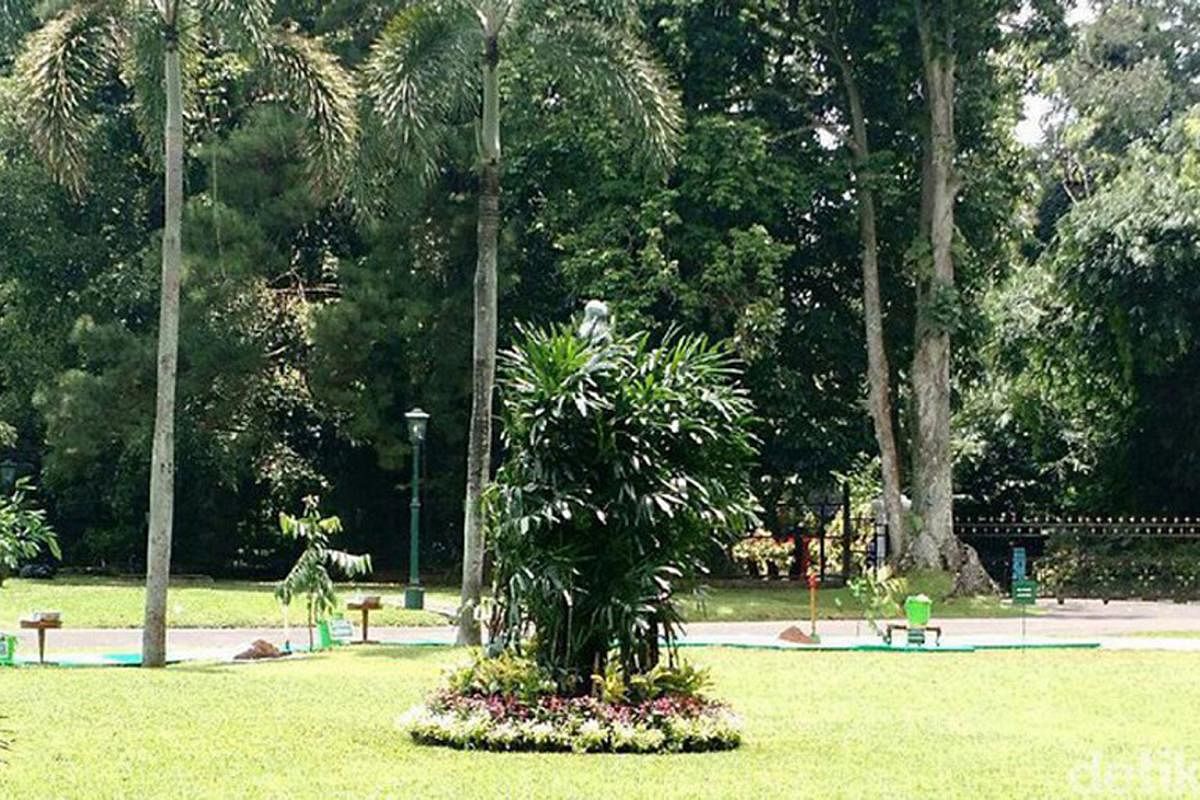
Indonesia staged a welcome fit for a king last Wednesday as the royal Saudi tour of Asia came to town.
It was the second stop for King Salman Abdulaziz Al Saud, who is on a seven-nation junket aimed at expanding Saudi Arabia's geopolitical influence and economic ties.
The first state visit by a Saudi monarch to Indonesia in 47 years also included an extended holiday in Bali, the Island of Gods.
Among Jakarta's wishlist for the visit was US$25 billion (S$35.3 billion) worth of investments, mainly in infrastructure projects, which are key to President Joko Widodo's plan to stir growth in South-east Asia's largest economy.
Observers say that partly explains why the government pulled out all the stops in hosting the King and his 1,500-strong entourage of 10 princes and 25 ministers.
But the focus of ordinary Indonesians, and many people around the world, was on the grandeur of a royal tour, and few put on a better show of luxury than the Saudis.
From the Boeing 747 airliner King Salman arrived in to the escalators he uses to descend onto the tarmac, as well as furniture and bathroom fixtures he would use during the tour, the colour gold was everywhere.
The extravagance that accompanies this latest royal tour, however, belies the reality of austere times in a kingdom faced with plummeting oil prices and the perennial threat of Islamic extremism.
The International Monetary Fund (IMF) in January dropped its annual economic growth forecast for Saudi Arabia this year to 0.4 per cent, down from 2 per cent.
This after the kingdom and other major oil producers agreed to cut production last December to ease a glut of supply that was causing oil prices to fall, reported CNN.
The drop in oil prices has led to a rethink of its economic strategy, one that will see the oil-rich nation wean off its dependence on oil.
Last October, the kingdom was forced to borrow US$17.5 billion, tapping international investors for the first time in recent history, due to a growing budget deficit.
The IMF in January said it expects Saudi Arabia to tap the international markets again this year.
Observers say Saudi kings rarely travel on such extensive tours outside the Middle East. This latest pivot to Asia is part of an economic transformation plan known as Vision 2030, announced last year by Deputy Crown Prince Mohammed Salman, second in line to the throne.
The 31-year-old prince told al-Arabiya news last April that he wants Saudi Arabia to exist "without any dependence on oil" by 2020 and transform into a major player in global investments.
The early promise of tens of billions in investments in South-east Asia, however, had a mixed start for the first three countries to host the king and his delegation.
The Brunei visit - a day-trip on Saturday before King Salman's vacation in Bali - was a ceremonial affair with no real economic agenda.
And while Malaysia scored with US$7 billion in new deals last week, Indonesia got only US$1 billion despite Jakarta rolling out the pomp and ceremony for the monarch.
Mr Faisal Assegaf, founder of Jakarta-based think-tank Albalad, questioned Saudi Arabia's commitment to Indonesia, a market where rival Iran is now its top 15th investor, while the kingdom is its 60th.
"Indonesia is a ground that is being battled over by Saudi Arabia and Iran for influence," he told The Straits Times last week. "But Iran has invested much more in Indonesia than Saudi Arabia."
His comments followed news last week that Indonesia is considering an offer of crude oil from Iran, which is boosting production by almost 40 per cent to 4.7 million barrels per day in the next five years.
But Mr Endy Bayuni, who is editor-in-chief of The Jakarta Post, saw other upsides for President Joko, such as the successful restoration of the annual haj quota for Indonesians to 211,000, after it was slashed by 20 per cent in 2014.
He said the President, better known as Jokowi, has been under pressure from some conservative Muslims groups and political opponents, who have attacked and cast doubts over his Islamic credentials.
"In building ties with Saudi Arabia, Jokowi may have done something that no other Indonesian leader before him has," wrote Mr Endy in The Post on Saturday. "In the process, he may have also helped build his own credentials as the leader of the largest democracy among Muslim-majority countries in the world."
Global affairs analyst Ankit Panda said King Salman's upcoming visit to China and Japan would differ from what he had planned with his trips to Brunei, Malaysia, Indonesia and the Maldives.
Tokyo and Beijing are large net importers of energy, and strong ties with the kingdom are fundamentally in their national interest, wrote Mr Panda in an op-ed in Al-Jazeera.
He added that Saudi Arabia is betting on a global shift from West to East in the coming years.
"Seeking out investments from Asian heavyweights, such as China and Japan, in this endeavour merits the king's attention," said Mr Panda. "No surprise then that Salman's Asian itinerary includes stops in the region's two largest economies.
Join ST's Telegram channel and get the latest breaking news delivered to you.
A version of this article appeared in the print edition of The Straits Times on March 07, 2017, with the headline A right Royal welcome. Subscribe

